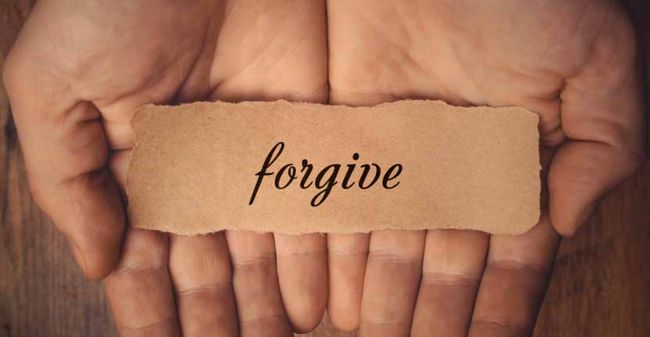Forgiving others
In the sixth part of a series looking at the Lord’s Prayer (Matthew 6: 9-13), David Searle considers forgiveness.

Photo: iStock
Forgive us our debts as we forgive our debtors.
WE have all heard the experts’ discussions on television. We hear one view expressed followed by a seemingly contradictory view. The two opposing views seem incompatible.
This petition in the Lord’s Prayer has sometimes caused confusion in Christians’ minds. Though the New Testament assures us that we are justified by faith and all our sins, past present and future are forgiven, nevertheless we still need to ask daily for forgiveness. Why?
The link between our once and for all forgiveness on the one hand and our need for daily forgiveness on the other hand, is contained in Jesus’ parable (Matt 18:21-3) of the unforgiving servant who owed the king a vast sum of money – the equivalent of twenty years of wages for a working man. In today’s money, it would have been several million pounds. This man would have made a very successful actor because with his tears he succeeded in moving the king to cancel his debt and render him debt-free.
In the story, however, the next day he came across someone who owed him the equivalent of a few hundred pounds.
Ignoring the poor man’s pleading, he had him flung into a debtors’ prison until his unfortunate wife and bairns should find the money to pay the debt.
His pitiless treatment of the debtor came to the king’s ears who summoned him and said: ‘I forgave you a huge debt. Should you not have forgiven a very small debt?’
The story concludes with the merciless man languishing in prison himself.
The Lord’s point was that God’s mercy towards us, if we truly are embraced by it, cannot leave us unchanged. When we drink deeply of the grace of God, it permeates our whole being. It gets into our spiritual blood stream; metaphorically, it changes our soul’s DNA.
(Incidentally, the metaphor implied in the word ‘debt’ is a court with a debtor in the dock and God seated on the judge’s throne.) In the incident of the washing of the disciples’ feet (John 13:1-15), Jesus refers to two kinds of spiritual washing: first, ‘bathing our whole bodies’ and second, ‘washing our feet only’. The ‘bathing’ is the once for all forgiveness of sin, past, present and future! But the ‘washing of our feet’ is the daily need for forgiveness, because constantly our feet pick up the dirt and grime from life’s pathway we must tread. So, every day we need our spiritual feet to be washed.
We too must ‘wash the feet’ of others. Constant grace and forgiveness are the lubricating oil of the Holy Spirit without which the Lord’s love cannot flow freely among us. If there is no daily forgiveness, the spiritual engine of the fellowship will seize up and grind to a tragic standstill.
God’s forgiveness truly applied has its own watermark which cannot be counterfeited: we prove we have been forgiven when we forgive others. Faith without works is dead. ¤